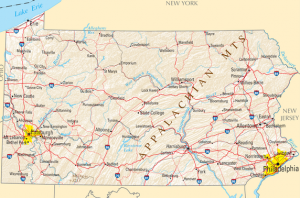Health officials with the Penn State University are reporting a slight increase in cases of viral meningitis on the University Park campus, according to a Penn State News report Friday.

Penn State’s University Health Services is working closely with colleagues at Mount Nittany Medical Center and the Pennsylvania Department of Health on this issue.
The debilitating, but rarely fatal viral meningitis(a.k.a., aseptic meningitis) is a very common type of meningitis affecting newborns, children and adults alike.
The symptoms of viral meningitis typically last a week or so; however, in some patients they can last for months. Symptoms include headache, fever, irritability, stiff neck, nausea and a sensitivity to light.
The Meningitis Foundation of America says viral meningitis is spread through the exchange of respiratory and throat secretions (kissing, coughing, sneezing, and sharing a cup, utensil, lip gloss, or cigarette). Viral meningitis is also found in one’s stool, which is how infants and neonates who aren’t toilet trained and adults changing diapers develop it.
Health officials urge students to practice good hygiene to avoid many types of illnesses, including viral meningitis and the flu. There is no specific treatment for viral meningitis at this time. Treating the symptoms of viral meningitis include getting plenty of rest, relaxation, fluids, and medicine to relieve a fever or headache.

